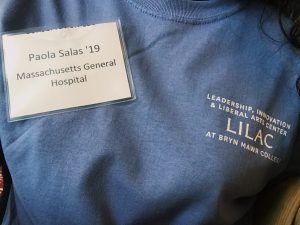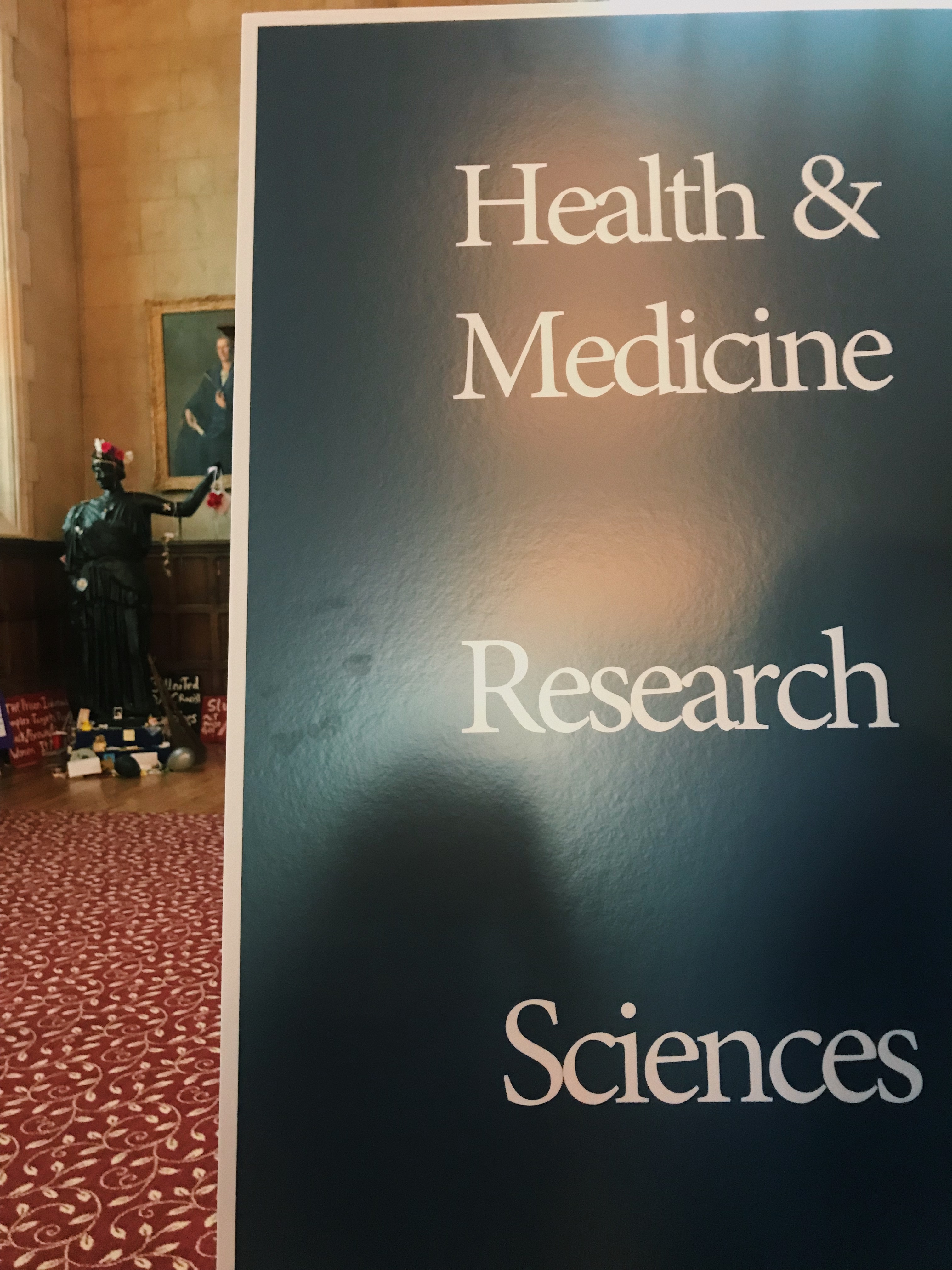Today I attended my second (and last!) Bryn Mawr & Beyond poster presentation. This is an event held every fall in the Old Library in celebration of the internships that Bryn Mawr students engaged in during the prior summer. The event always takes place during Parents’ Weekend and is full of students who’ve already received LILAC summer funding, students who might be interested in doing so in the future, faculty and staff, parents, visitors, etc. It’s a really relaxed setting that allows conversation about what Bryn Mawr students are doing outside of campus. Plus there’s free snacks and t-shirts!


Me and Ariana Serret (c/o 2020)
This past summer, LILAC funded my internship at Massachusetts General Hospital’s Disparities Research Unit. The center conducts a variety of research on health disparities and offers interventions that seek to narrow the health gaps that exist among people of different ethnicities, races, socio-economic classes, etc. I was able to work on two really interesting projects throughout my time there. One offered exercise classes and community health worker sessions to elderly folks in greater Boston, in hopes of improving their overall mental and physical wellbeing. Another sought to improve treatment adherence among HIV positive Latinx immigrants by creating a telenovela that showed them positive representations of their experiences, as well as community health worker sessions. Both projects were centered on health justice and sought to make the kind of changes that I am particularly passionate about.

The event was divided into different sections based on fields. This was my field (health & medicine), right by our Athena statue.
Many cool internship opportunities like this exist but cannot offer great pay for undergrad students interested in filling those positions. Schools like Bryn Mawr, however, acknowledge that and offer students an opportunity to fulfill those roles without having to worry about the pay.
This is my second time receiving LILAC funding for a summer internship and I always advocate for them and try to encourage more students to apply. MGH is even letting me use data from their research for my thesis project this year and has been immensely helpful in planning for post-grad. Were it not for LILAC funding, I wouldn’t have been able to have that.
As I go through the last-leg of my college years, I am trying to be reflective of all of the wonderful experiences I’ve been able to have because of Bryn Mawr. And I think of all the experiences that underclassmen and future Mawrters will have too. One of the things I’ve always been grateful to Bryn Mawr for is how much it helps its students professionally, and LILAC funding is just one example of how committed Bryn Mawr is to the professional success of Mawrters.
